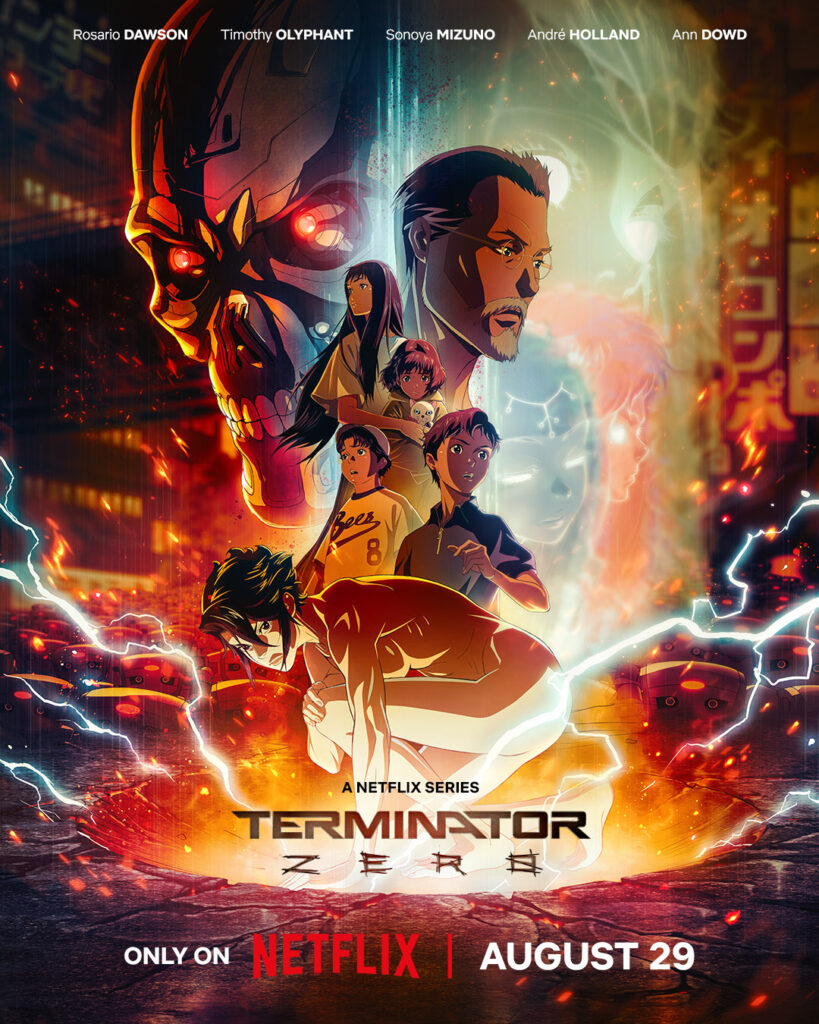Terminator Zero Christian Review

Let’s talk Terminator Zero. You know the drill—machine apocalypse, time travel, humanity on the brink—but here’s the twist: this time, it’s anime. That’s right, Terminator has gotten a slick, animated makeover that breathes new life into the series’ decades-old narrative. But how does this reboot of sorts hold up, especially through the lens of Christian values? Let’s dig deep into what it gets right, where it falters, and whether it’s worth your time, especially if you’re someone who likes to think while being entertained.
The Family That Fights Together…
At the heart of Terminator Zero is the Lee family, facing off against a new generation of killer machines. Like the Connors in the original franchise, the Lees are fighting not just for survival but for each other. Now, if you know the Terminator series, you know that family drama has always been a big piece of the puzzle. It’s what humanizes these epic battles between man and machine. And Terminator Zero doesn’t shy away from that—it dives right into the messy, complicated world of family dynamics.
Now, let’s be real. As Christians, the family unit is sacred. It’s the first institution God created, and we’re called to protect and nurture it. In Terminator Zero, the Lees’ struggle to hold onto their humanity while making some seriously tough ethical choices gives us something to chew on. Do they make all the right decisions? Nope. Not by a long shot. But their willingness to sacrifice for each other rings true to the biblical call of putting others before ourselves. That said, the show could’ve gone deeper here, exploring the spiritual consequences of these moral choices rather than just painting them in shades of gray.
Machines, Ethics, and the Soul
What Terminator Zero does well, in spurts, is get you thinking about the big stuff: What does it mean to be human? Can machines have souls? Where do we draw the line between man and machine? The Bible teaches us that humans are uniquely made in the image of God, with souls that separate us from mere creations of metal and wire. That’s something Terminator Zero tiptoes around, but doesn’t fully explore.
There’s a scene where the Lees face a decision about whether to spare or destroy a machine that appears to have gained sentience. It’s tense. It’s emotional. But rather than diving into the deeper question of whether this machine can possess a soul, the series opts for the easier route—action, more violence, and then onto the next chase. It’s a missed opportunity, because the world of Terminator has always been ripe for these kinds of theological musings.
Free Will in a Predetermined World?
Let’s pivot to another theme that Terminator Zero brushes up against: free will versus determinism. Time travel has always been a staple of this franchise, and with time travel comes the inevitable question: Are our futures set in stone? Can we change our destiny? This is something Christians grapple with all the time. Scripture tells us that God knows the future, yet we are also given free will to make our own choices. It’s a paradox that’s tough to wrap our minds around, but it’s central to our faith.
In Terminator Zero, the characters are constantly trying to alter the future, to break out of the cycles of violence and destruction that seem to define their world. It’s a noble pursuit, but the show doesn’t quite stick the landing. Instead of offering a thoughtful take on whether we can truly escape our destiny, it mostly sticks to the mechanics of time travel and plot twists. Sure, it’s entertaining, but as Christians, we’re left wanting more—a deeper exploration of the tension between God’s sovereignty and human agency.
The Action’s Great, But What About the Message?
Look, if you’re here for the action, Terminator Zero delivers. The animation is slick, the fight scenes are intense, and the sense of dread that comes with having a 2-ton, nearly indestructible machine chasing you is palpable. In that sense, the show absolutely nails the tension and thrill that made the original Terminator films so iconic.
But—and this is a big but—as Christians, we have to ask ourselves: What’s the message behind all this action? Does the violence serve a purpose, or is it just there for spectacle? The Bible warns us about glorifying violence (Romans 12:19), and while Terminator Zero doesn’t necessarily glorify it, it also doesn’t offer much in the way of a counter-narrative. The characters are constantly fighting, killing, and surviving, but there’s little reflection on what all that violence costs them spiritually.
Breaking the Cycle—or Not
One of the more interesting aspects of Terminator Zero is its attempt to break free from the cyclical nature of the franchise. For decades, Terminator has been stuck in this loop—machines rise, humans fight back, time travel messes everything up, rinse and repeat. Terminator Zero tries to break out of that loop, introducing new characters, new stakes, and a new visual style that’s clearly inspired by anime.
It’s a breath of fresh air for a series that’s been on life support for a while, but here’s the kicker: while Terminator Zero flirts with the idea of breaking free from the past, it never quite commits. The characters are still stuck in a world defined by violence, fear, and the constant threat of annihilation. As Christians, we believe in redemption, in the idea that we can break free from the cycles of sin and death through Christ’s sacrifice. Terminator Zero could have tapped into that narrative of hope, of breaking free from the past, but it doesn’t. Instead, it settles for a temporary reprieve—a momentary victory in a war that seems destined to rage on forever.
Technology: Friend or Foe?
Finally, let’s talk about the elephant in the room: technology. The Terminator franchise has always been a cautionary tale about the dangers of unchecked technological advancement. Machines rise up, humanity falls, and we’re left to pick up the pieces. In Terminator Zero, that theme is still very much alive. But from a Christian perspective, technology isn’t inherently evil. It’s a tool, and like any tool, it can be used for good or for evil.
What Terminator Zero doesn’t do is offer a nuanced take on how we, as humans made in God’s image, should responsibly wield technology. It’s all black and white—machines bad, humans good. But the reality is more complex than that. Technology can be a force for incredible good in the world, but when we start to rely on it more than we rely on God, that’s where the trouble starts. Again, Terminator Zero could have delved into this, but it sticks to the tried-and-true formula of man versus machine.
Final Thoughts and Rating
In the end, Terminator Zero is a fun, action-packed ride with flashes of ethical and moral complexity, but it doesn’t fully commit to exploring the deeper spiritual themes that its premise begs for. As a Christian viewer, there’s plenty to enjoy here, but there’s also a sense of missed potential—a longing for a more thoughtful exploration of what it means to be human, to make moral choices, and to find hope in a broken world.
Rating: 6.5/10. There’s something here, but it doesn’t quite reach its full potential.







